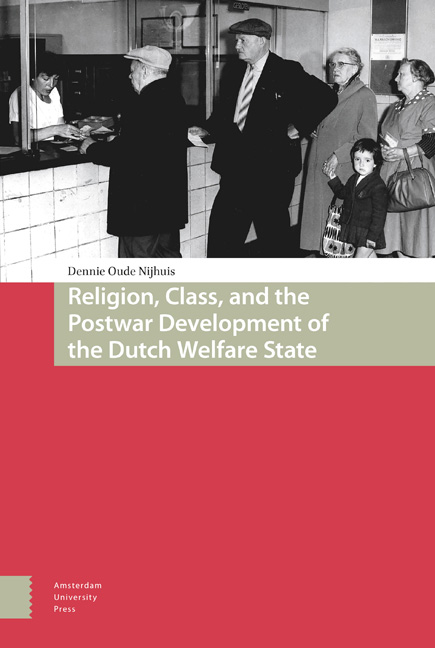6 - Catering to the Low Paid
Published online by Cambridge University Press: 11 December 2020
Summary
The rapid and relatively smooth expansion of the Dutch welfare state from the early 1960s onwards was not only made possible by the collapse of the guided wage policy and dwindling confessional aversion to state interference and preoccupation with personal responsibility and self-help in this period; moreover, it was also strongly important that there does not seem to have been particularly powerful resistance to the redistributive consequences of this expansion. On various occasions, the previous chapters have already highlighted these consequences. As benefit generosity gradually increased and entitlement conditions also became more lenient over time, risk redistribution among groups that were more and less exposed to major labor market risks such as sickness and unemployment naturally also increased. Moreover, in order to ensure that the welfare system not only adequately catered to middle-class groups with a relatively strong position on the labor market, but also for those who were unable to obtain sufficient protection against labor market risks through a purely actuarial approach, governments of various political persuasions adopted specific measures to improve matters for the latter group. An excellent example of this is the aforementioned mid-1950s decision to introduce a state old-age pension that combined flat-rate benefits with contributions that were graduated according to income up to a threshold set at just below twice the average income level in manufacturing industry. In future years, many more of these measures were to follow.
As the postwar period progressed and “regular” workers were increasingly well catered to, policy-makers gradually came to focus more on improving matters for society's most vulnerable groups. For instance, the realization that a substantial minority of mostly low-paid workers would not be able to obtain access to supplementary occupational pension provision in the foreseeable future motivated parliament to raise the level of the old-age pension benefit to that of the “social minimum” during the mid-1960s. In consecutive years, it also decided that most other major insurance programs as well as the social assistance scheme were to hand out benefits that were at least equal to the social minimum level. This among others led to the introduction of minimum benefit rates into the “Bismarckian” state unemployment and disability insurance programs.
- Type
- Chapter
- Information
- Publisher: Amsterdam University PressPrint publication year: 2018



